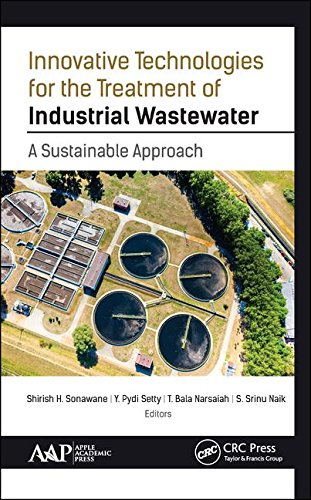

Most ebook files are in PDF format, so you can easily read them using various software such as Foxit Reader or directly on the Google Chrome browser.
Some ebook files are released by publishers in other formats such as .awz, .mobi, .epub, .fb2, etc. You may need to install specific software to read these formats on mobile/PC, such as Calibre.
Please read the tutorial at this link: https://ebookbell.com/faq
We offer FREE conversion to the popular formats you request; however, this may take some time. Therefore, right after payment, please email us, and we will try to provide the service as quickly as possible.
For some exceptional file formats or broken links (if any), please refrain from opening any disputes. Instead, email us first, and we will try to assist within a maximum of 6 hours.
EbookBell Team

0.0
0 reviewsThis book highlights advances in sustainable wastewater treatment technologies, particularly biological wastewater treatment, cavitation-based treatment, hybrid water treatment, membrane technologies, advance oxidation processes, and adsorption. The book focuses on a variety of advanced treatment techniques that are useful for the degradation of organic components, dyes, heavy metals effluent, etc. in wastewater.
Industrial wastewater consists of variety of discharges based on the type of industry, such as the dairy/food industries, which generate more fats and high BOD value with variation in the pH value, while the electroplating industry may expel more inorganic matter and dissolved solids. The oil extraction industries will have more solvents contained in the effluent, and dyes and textiles industry create a higher organic load with high TDS. Hence, every type of manufacturing industry needs a different method for the treatment of its effluents.
Looking at the use of intensified chemical processes in order to make cleaner environment, Innovative Technologies for the Treatment of Industrial Wastewater explores the new and innovative methods for pollutant removal that will prove useful for a variety of industries.
Conventional wastewater treatment processes require a significant amount of energy and involve expensive equipment and maintenance. Sustainable wastewater treatment technologies, however, involve less generation of energy and employ more economically feasible treatment methods, requiring less equipment and fewer maintenance costs. Looking at the use of intensified chemical processes in order to make a cleaner environment, this volume explores new and innovative methods for pollutant removal that will prove useful for a variety of industries. This book highlights advances in sustainable wastewater treatment technologies, particularly biological wastewater treatment, cavitation-based treatment, hybrid water treatment, membrane technologies, advanced oxidation processes, and adsorption.